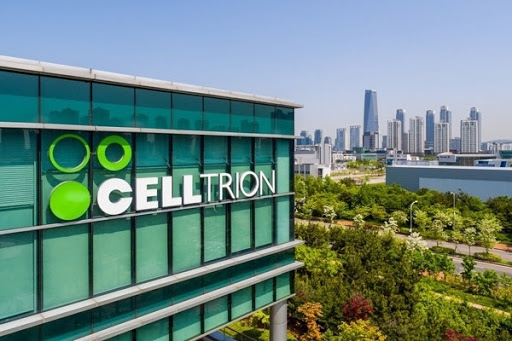Celltrion said it reported consolidated sales of 2.1 trillion won ($1.5 billion) and operating income of 651 billion won in 2023, down 4.71 percent and up 0.66 percent, respectively, from the previous year.

The company also posted a net profit of 539.2 billion won, down 0.53 percent, and an operating profit margin (OPM) of 30 percent.
Celltrion attributed the slight dip in overall sales to the reduced demand for Covid-19-related products.
However, the company stressed that its flagship business biosimilars experienced a significant growth spurt.
Sales from biosimilars reached 1.4 trillion won, marking an 11.6 percent increase from the prior year.
Notably, global sales of Celltrion's Remicade biosimilars, including Remsima and Remsima SC, saw steady growth.
Remicade, developed by Janssen, is designed to treat a range of conditions, including rheumatoid arthritis, ankylosing spondylitis, psoriatic arthritis, psoriasis, adult Crohn's disease, and adult ulcerative colitis.
Remsima's sales approached 1 trillion won, while Remsima SC broke through the KRW 300 billion mark in annual sales, demonstrating rapid market share expansion.
According to market research firm IQVIA, the combined market share of Remsima and Remsima SC in the top five European countries reached 72 percent, with Remsima SC alone capturing a 20 percent share.
With the anticipated expansion of indications in Canada and the launch of Zymfentra (Remsima SC's U.S. brand name) in the U.S., Celltrion also expects significant global sales in the future.
The company also stressed that it reported positive developments in its other biosimilar products, Truxima and Herzuma, which have shown strong market share in Europe, the U.S., and Japan, and is seeing increasing demand for its newer biosimilars, Yuflyma and Vegzelma, in Europe and the U.S.
Following a strategic merger with Celltrion Healthcare in December of the previous year, Celltrion has optimized its business structure, significantly reducing its debt ratio from 37.8 percent to 16.1 percent and planning to improve its cost of goods sold (COGS) from the 60 percent range in the first quarter to the 20 percent range by the fourth quarter of next year.
Looking ahead, Celltrion expects to enter a high-growth phase in 2024, with projected revenues of 3.5 trillion won and earnings before interest, tax, depreciation, and amortization (EBITDA) of 1.6 trillion won, aiming for an EBITDA margin of over 40 percent.
"Last year, we achieved solid growth in our core biosimilars business and optimized our business structure," a Celltrion official said. "This year will be a year of new leaps forward with an expanded product portfolio and improved cost of sales."
Related articles
- Celltrion applies for Actemra biosimilar CT-P47’s sales license in Korea
- Celltrion ships 1st batch of Zymfentra to US
- Celltrion presents new Remsima SC study results at ECCO
- Celltrion completes FDA submission for Xolair biosimilar
- Celltrion launches Zymfentra in US, setting wholesale cost at $6,181.08 for 2 doses
- Celltrion annual shareholders' meeting addresses expansion plans, stock price concerns, director remuneration
- Celltrion launches Yuflyma 20mg for children with autoimmune diseases in US
- Celltrion partners with the Crohn's & Colitis Foundation to enhance IBD awareness in US
- Celltrion secures major PBM contract for Zymfentra in the US

